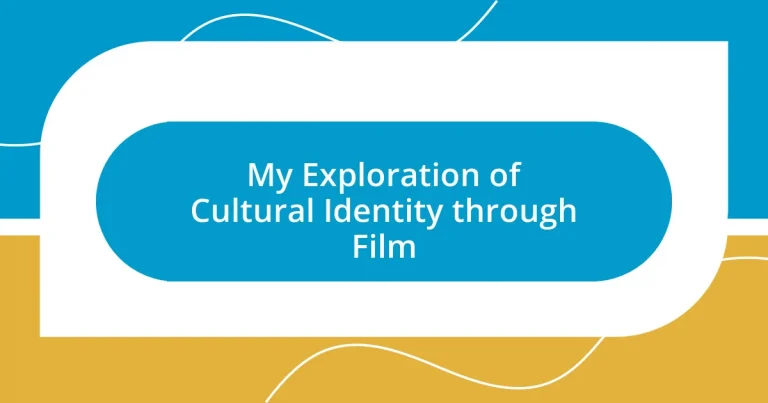Key takeaways:
- Cultural identity is shaped by personal narratives and cultural films that resonate with individual experiences, fostering connections to heritage and family.
- Films like “The Namesake,” “Black Panther,” and “Frida” illustrate how cinematic storytelling can influence self-perception and empower individuals through representation and emotional resonance.
- Diverse films encourage reflection on societal issues and personal identities, promoting empathy and the importance of acknowledging varied narratives within cultural contexts.
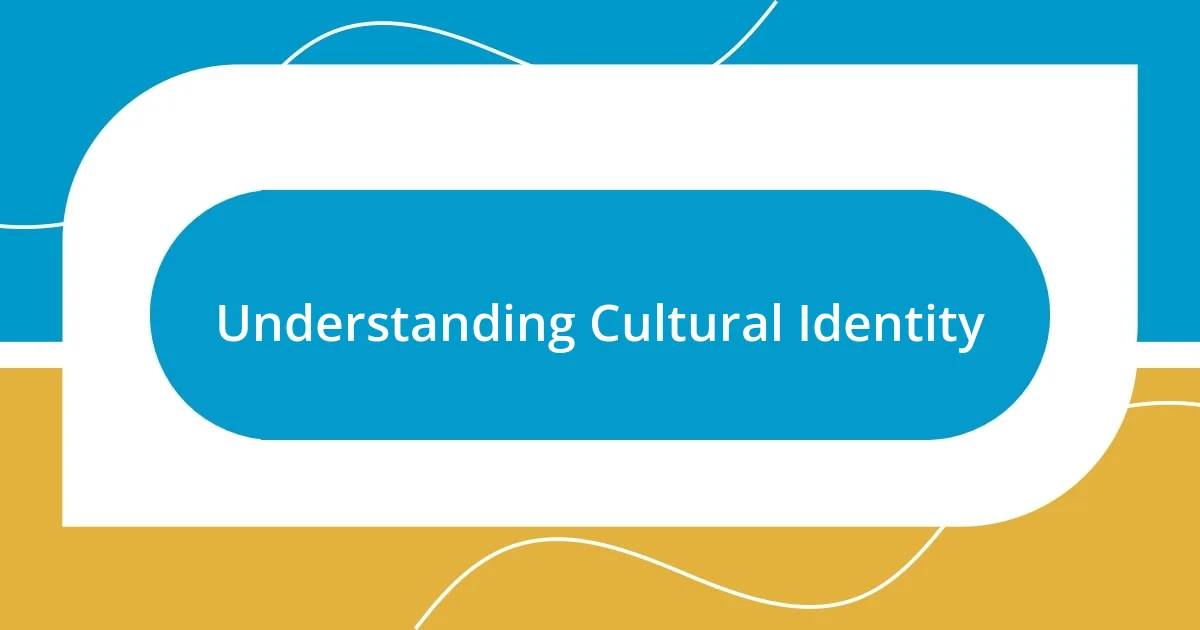
Understanding Cultural Identity
Cultural identity is a tapestry woven from various threads, including ethnicity, language, and shared traditions. I remember watching films from my childhood that reflected my family’s heritage; they made me feel a deep connection to my roots. Have you ever experienced a moment when a story on screen mirrored your own life, making you realize how interconnected we all are?
Delving into cultural identity often reveals profound personal insights. For me, discovering the stories that shaped my upbringing opened up discussions with my family about our history—conversations I never realized were so crucial. This exploration made me question: how much of our identity is collectively formed through the narratives we consume, be it in film or in everyday life?
It’s interesting how cultural identity isn’t static; it evolves with our experiences. I’ve found that through films, I’ve been able to see my identity through a kaleidoscope of perspectives. How does your cultural background inform the way you perceive different stories on screen? It’s this ongoing dialogue between self and society that enhances our understanding of who we are.
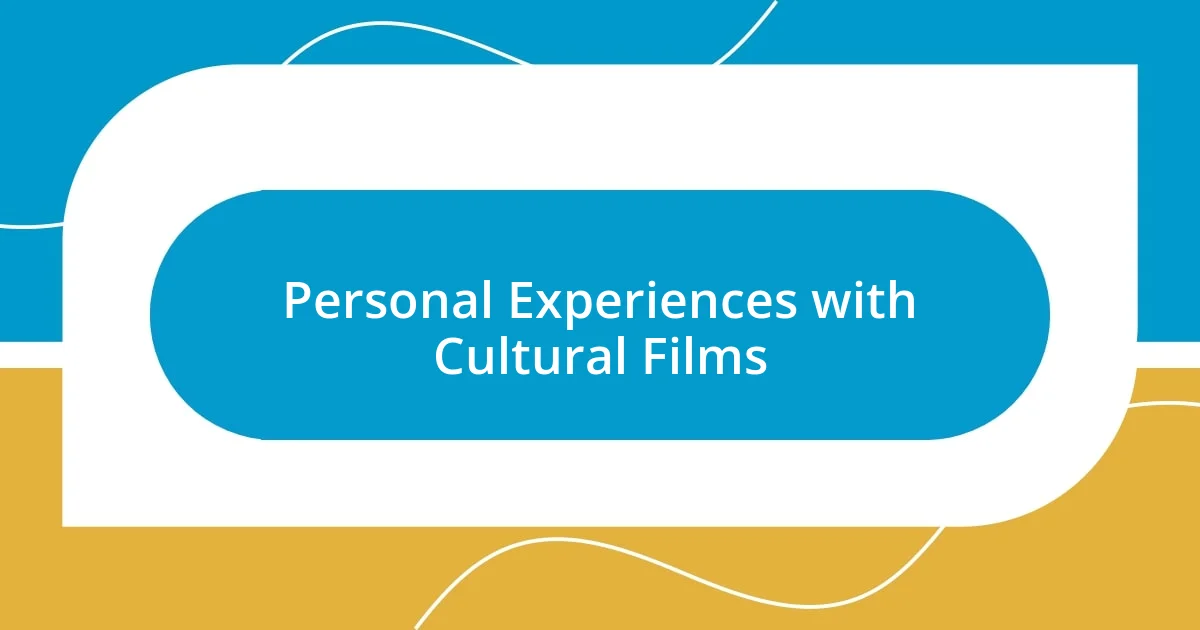
Personal Experiences with Cultural Films
Engaging with cultural films has always been a journey for me. I vividly recall the first time I watched “Crouching Tiger, Hidden Dragon.” The breathtaking visuals and the rich tapestry of Chinese culture drew me in, but what truly resonated was the complex portrayal of honor and sacrifice. It made me reflect on the values my grandparents instilled in me, highlighting how deeply our cultural narratives shape our perceptions of love and family.
- I have often found myself laughing, crying, and pondering my identity through characters that reflect the nuances of my background.
- Watching films like “Moana” allowed me to appreciate my own cultural heritage while simultaneously connecting with the struggles of another culture.
- Each experience has served as a reminder that, although our stories may differ, the emotional cores of our journeys often overlap, creating an intricate web of shared understanding and empathy.
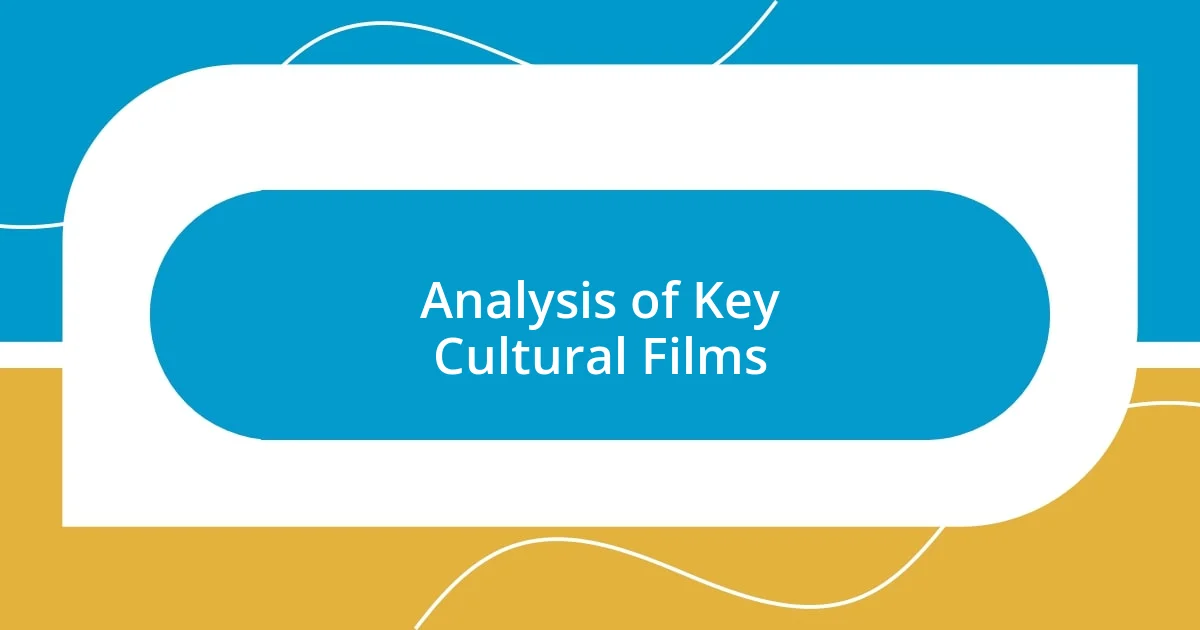
Analysis of Key Cultural Films
I find that certain cultural films have an unparalleled ability to reflect and shape our understanding of identity. For instance, “The Namesake” is a powerful exploration of cultural dislocation and the immigrant experience. Watching it, I recalled my own family’s journey, which ignited a yearning to delve deeper into the traditions that have shaped my life. Has a movie ever made you reevaluate the stories of your ancestors? These films provide a canvas where personal histories can meet cinematic storytelling.
Another example is “Black Panther,” which brilliantly merges themes of identity, community, and heritage. The portrayal of Wakanda—a place rich with culture and history—invited me to consider how representation in film impacts our self-image. I felt a unique empowerment as I watched characters embrace their heritage. This experience prompted me to ponder, how much does seeing oneself represented on screen influence our community connections and aspirations?
Cultural films, such as “Frida,” allow for an intimate understanding of the artist’s journey and identity. The vivid imagery and emotional storytelling pushed me to examine how my unique experiences inform my perceptions. The intimacy of Frida Kahlo’s life resonated deeply, reminding me of the power of art to express our struggles and triumphs. Isn’t it fascinating how film can bridge personal and collective experiences, molding our sense of belonging and identity?
| Film | Key Themes |
|---|---|
| The Namesake | Cultural dislocation, immigrant experience |
| Black Panther | Identity, representation, empowerment |
| Frida | Art, personal struggle, self-expression |
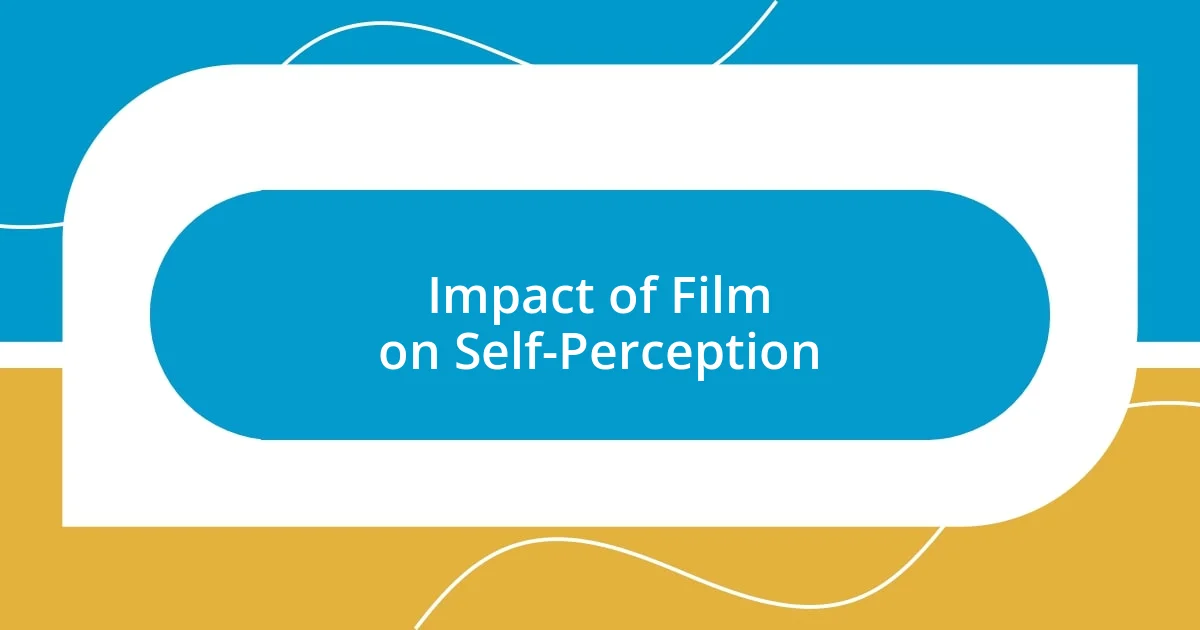
Impact of Film on Self-Perception
Watching films impacts how I see myself in profound ways. There was a moment during “Pride,” a film about the true story of LGBT activists supporting striking miners in 1980s Britain, where I felt a surge of belonging. It’s striking how the characters’ journey mirrored the solidarity I’ve experienced in my own life. Have you ever felt a rush of identity when watching a film that resonates with your values? It’s almost as if these cinematic experiences allow us to explore our personal narratives more deeply.
I also remember being moved by “Soul,” which tackles themes of purpose and fulfillment. It struck a chord within me, provoking reflection on what truly defines my existence—beyond just career and societal expectations. There I sat, pondering: how often do we lose ourselves in the hustle and bustle of life? This film encouraged me to embrace my passions and reassess what brings me joy, reminding me that self-perception is a lifelong journey shaped by both individual experience and shared narratives.
In moments of vulnerability, films like “The Farewell” hit home by illuminating the conflicting emotions of cultural loyalty and personal identity. As I watched the characters navigate their cultural ties amidst a family crisis, I felt my own immigrant background tugging at my heartstrings. Are our familial ties pivotal in shaping our self-image? I’d argue yes, as such films challenge us to reconcile our heritage with our evolving identities, fostering a more nuanced understanding of who we are.
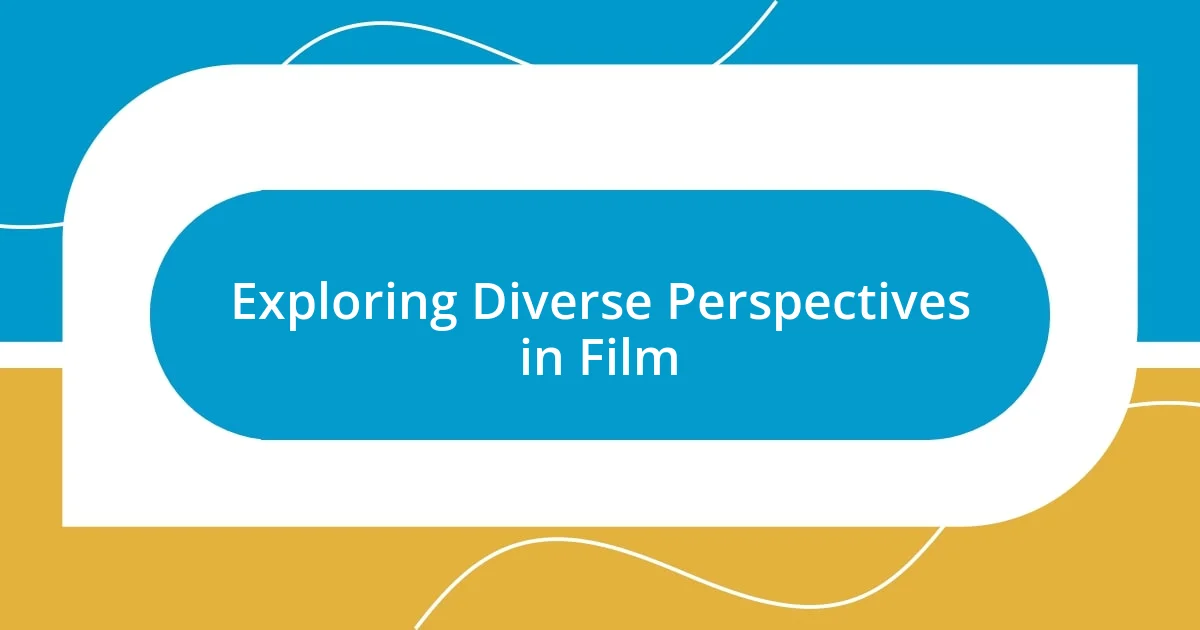
Exploring Diverse Perspectives in Film
When I immerse myself in films like “Coco,” I can’t help but feel an emotional stir as it beautifully celebrates family and cultural memory. The vibrant depiction of Día de los Muertos—a celebration that honors loved ones who have passed—prompted me to reflect on my own traditions. I found myself questioning: how often do we revisit and celebrate our own cultural rituals? This film made me realize that recognition of our roots can bring warmth and connection, bridging gaps between generations.
Then there’s the mesmerizing “Parasite,” which cleverly highlights class disparities through its gripping narrative. Witnessing the stark contrast between the wealthy and the struggling built a new awareness within me regarding social identity. I often reflect: how does economic background shape moral choices and family dynamics? Engaging with such diverse perspectives challenges not just my views but also encourages me to advocate for empathy in a world too quick to judge.
Lastly, films like “A Fantastic Woman” offer profound insights into gender identity and the societal challenges surrounding it. Watching the protagonist fight for recognition and dignity resonated deeply with my understanding of self-acceptance. I couldn’t help but ask myself: in what ways do we silence unique voices in our own communities? This spotlight on marginalized identities compelled me to listen more intently to the stories of others, reinforcing the belief that every narrative contributes to the rich tapestry of cultural identity.












